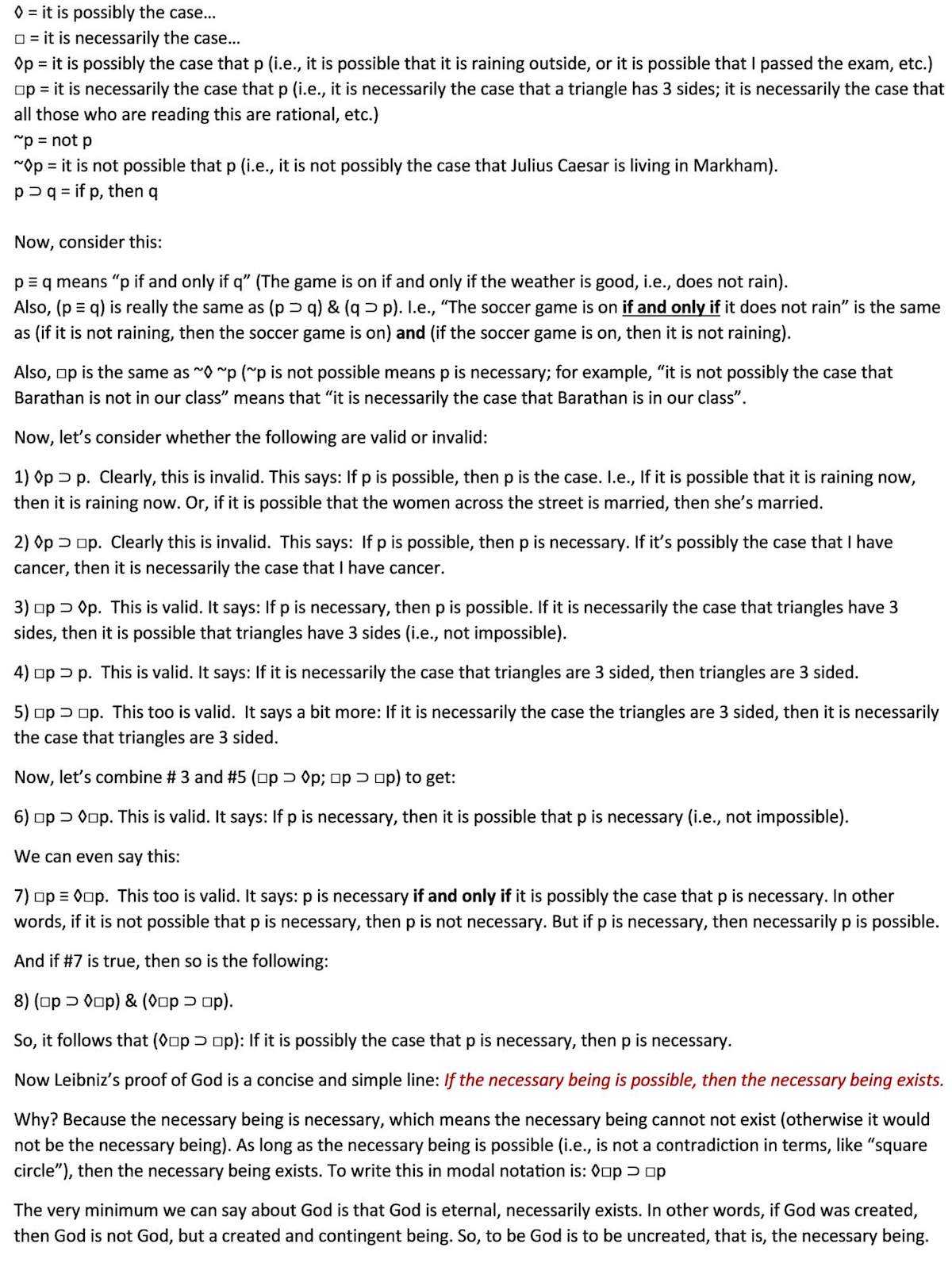Leibniz's Modal Proof of God's Existence
The simplest proof of God's existence is that offered by Gottfried Wilhelm Leibniz. Some people do not believe it is a valid proof of God's existence, others believe it is valid but insist that it is uncompelling. I am of the opinion that it is logically valid, and I do find it compelling - it is mysterious to me why others do not find it a compelling argument. Leibniz' argument is an ontological argument, which means it begins with the "idea of God" and proceeds to demonstrate the "existence of God". Going from the "idea" of something to its existence is an invalid approach when it comes to proving the existence of anything else, but it is a valid approach to proving God's existence, as I will try to show. To demonstrate its logical validity, however, consider the following points, which can be regarded as a very brief introduction to modal logic. Categorical logic is about the logic of categorical statements (All cats are cute); conditional logic is about the logic of conditional statements (if p, then q), but modal logic is about the logic of possibility and necessity.
The word 'contingent' means 'may or may not be', whereas necessary means 'cannot not be'. You and I are contingent beings because we need not be, that is, our existence is not necessary - otherwise we would have always existed. The following is a review of the basic notation of modal logic:

Many philosophers of religion point out that the experience we have of our own contingency (my awareness that I am not necessary, that although I exist, it is not necessary that I exist) is only possible against the background of a simultaneous awareness of "the necessary being" (I am aware that I am not it). It is in this sense that the human person has a pre-conscious and natural knowledge of God as "necessary being", even though that awareness might not be explicit, but only implicit. And so "religion" (in the sense of the desire to establish harmony between oneself and this totally "Other" source of meaning and existence) is a natural inclination, which is why we see religion in every culture throughout history. Man is a naturally religious animal. Even so called "atheists" manifest a tendency to seek harmony between themselves and some totally "Other", it's just that they don't believe that "Other" is God, but perhaps reality as a whole, or nature, or the universe, etc.
When we start from the Necessary Being, it is possible to deduce a host of other things, such as 1) there is only One Necessary Being, 2) the Necessary Being is not a quantity with parts, 3) the Necessary Being is immaterial, intelligent, unchanging, supremely good and beautiful, etc. But this is the area of Metaphysics, the philosophy of being. Perhaps we can leave this for another article.
Article copyrights are held solely by author.
[ Japan-Lifeissues.net ] [ OMI Japan/Korea ]